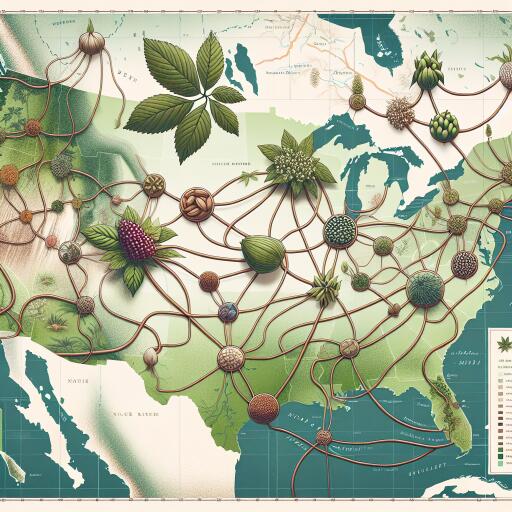
Native Seed Network Takes Root in the U.S. Northeast
In early 2023, a comprehensive study by the National Academies of Sciences, Engineering, and Medicine highlighted a critical shortage in the supply of native seeds for restoring ecosystems across the United States. This shortfall has significant implications for tackling the escalating issue of ecological degradation caused by climate change, urbanization, and other environmental stressors. The demand for native seeds is essential to aid the recovery and sustainability of these damaged ecosystems.
The United States recently recorded its most expensive year in terms of climate-related disasters, with damage costing nearly $100 billion and extensive land degradation. Native seeds are fundamental to ecological restoration efforts, playing a crucial role in rebuilding the structure, function, and composition of ecosystems affected by various forms of damage.
Large-scale restoration projects require an immense volume of seeds and plant saplings, highlighting the urgent need to boost native seed and plant material supplies. Yet, extracting these materials from wild populations places additional strain on already vulnerable ecosystems. A more sustainable approach involves integrating native species into agricultural practices to produce seeds and plant materials at scale.
The concept of a supply chain offers a framework for addressing this issue by encompassing all phases from habitat conservation and seed cultivation to processing and storage. However, a significant challenge remains: the skewed distribution of federal land ownership towards the Western U.S. and the consequent focus on native seed procurement by federal agencies in those areas, leaving the Northeast and Northern Mid-Atlantic states at a disadvantage despite shared ecological challenges.
To combat this, a number of organizations and initiatives in the Northeast and Northern Mid-Atlantic have been working towards enhancing the supply of native seeds and plant materials. A recent and notable development in this quest is the launch of the Northeast Seed Network in March 2023. This collaboration aims to unite a diverse group of stakeholders, from government agencies to farmers and academic institutions, to bolster the collection, cultivation, and distribution of native seeds.
Dina Brewster, an organic farmer and seed-growing advocate, underscores the unique challenges and rewards of native seed production. Brewster emphasizes the unpredictability and resilience of native plants, illustrating their vital role not only in ecosystem restoration but also in promoting biodiversity and supporting sustainable agriculture through pollinator habitat creation.
The cultivation of native seeds transcends traditional agriculture, demanding a compassionate and adaptive approach that recognizes the inherent wisdom and resilience of these species. These efforts have far-reaching benefits, including erosion control, aesthetic landscape enhancement, and the creation of green infrastructure for efficient stormwater management.
Organic farmers like Brewster play an essential role in scaling up the supply of native species, seeing this pursuit as mutually beneficial for ecological restoration and the agricultural community. The Northeast Seed Network embodies a collective effort to tackle ecological degradation, foster innovation, and develop a sustainable supply chain model tailored to the region’s unique needs and circumstances.
Guided by insights from a comprehensive survey and ongoing collaborative efforts, the Network is taking significant strides towards meeting the current and future demands for native seeds in the Northeast and Northern Mid-Atlantic regions. This initiative is not just about restoring landscapes but also about building a resilient community committed to ecological health and sustainable development.





Leave a Reply